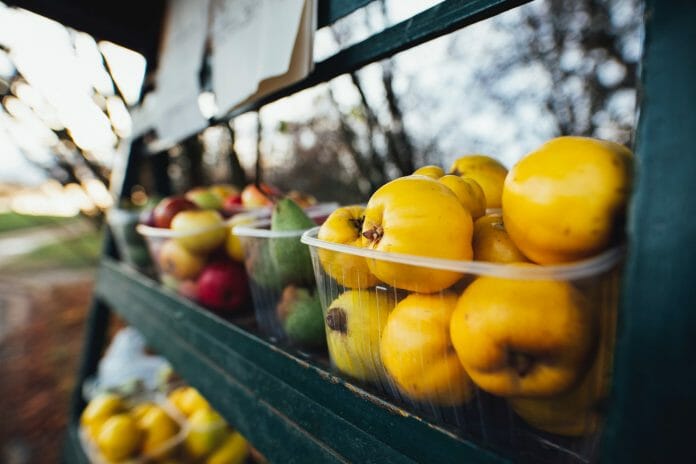By Farhan Kamarulzaman,
Apart from our main concern about the adverse effects of Covid-19 on public health, our prime deliberation should also be to promote a healthy lifestyle to avoid high-risk diseases, primarily by prioritising the nutritional elements in our country’s food and beverage (F&B) supply.
Shockingly, Malaysia has recorded the highest rates of obesity and non-communicable diseases (NCDs) in South East Asia. Even the Global Burden of Disease estimated that ‘dietary risks’ for NCDs are 14.6 per cent, and the ‘high body mass index’ accounts for 9.9 percent of disability-adjusted life-years in our country.
Besides the high discipline of the rakyat to practise a healthy lifestyle, a need-to-know basis is that it also stems from supply factor of F&B, which requires the industry’s intervention and efforts to meet consumer demand for nutritious F&B.
IGD, a research and training charity which sits at the heart of the food and consumer goods industry in the UK, also claims that product innovation, renovation and reformulation by the F&B sector are necessary to encourage people to consume healthy and nutritious F&B.
Despite current government action plans such as Malaysia’s National Plan of Action for Nutrition of Malaysia (NPANM) III 2016–2025 and industry self-regulation approaches and commitments, our country needs a high level of commitment from F&B companies to improve product and population nutrition.
According to the research carried out by the Global Obesity Centre, the nutrition commitments of major F&B companies such as Nestle, Dutch Lady, and other companies were still inadequate, generally ambiguous and unspecific.
In particular, some of them have overlooked the need to include specific targets for nutrients of concern such as sugar and sodium reduction. Although some position a high commitment, it is still insufficient as it is only for selected products and not for all products or product ranges.
Thus, this requires the government’s role to emphasise continuous monitoring of the move towards healthier features and track progress to ensure all relevant parties do walk the talk on the action.
While for long-term improvement, our country will need strong government regulations to magnify the effort of the F&B industry and continually improve its quality on healthy F&B supply.
Malaysia was also dubbed the “fattest” in Asia for the first time in 2014 and has managed to hold the record ever since, which needs an in-depth review and analysis of the strategies outlined in the various policies to prevent it from continuing to hold the title.
In the Covid-19 era, the Movement Control Order (MCO) phase implemented by the government to curb the spread of Covid-19 also transformed the healthy lifestyle of the rakyat into food intake without any dietary consideration.
The Covid-19 crisis that did not impact some households’ incomes has also caused them to abandon healthier food choices, especially during the self-isolation.
On a side note, findings by UNICEF and the United Nations Populations Fund have also added that the peculiar rise in consumption of eggs, rice and instant noodles among the poor urban dwellers during the MCO era was an indicator of poor nutrition exacerbated by the Covid-19 crisis.
So, one thing to ponder is understanding the key drivers behind the nutritional transition and then determining at what stage the shift is, as the key to help the government to have proper, better and targeted government initiatives to the needy.
It shows that the greatest obstacle in promoting healthy and nutritious food is not only based on the supply alone, as the high cost is also a disincentive to people’s willingness to move to a healthy diet, followed by taste and habit.
According to Food Industry Asia, a non-profit organisation that discusses complex issues among the food industry, nearly all Malaysians are interested in a healthy diet. But 71 per cent identified cost as a critical barrier to achieving it.
It summarised the high demand for healthy food should be met by increased supply, which will effectively help lower the price under the demand and supply rule.
To further accelerate the progress of F&B companies on looking for ways to enhance the nutrition of their products, the greater financial incentive by the government would be useful in encouraging research and development activities for the development of new healthy products.
What is clear is the challenges that F&B companies are facing, such as financial, research and development process and lack of technical knowledge, should be eased by the related authorities to help them move towards the provision of healthy products.
In addition to the colossal promotion of a healthy diet, the government should resolve the issues that stalled the people’s intention toward a nutritious diet, such as the price, which is the primary concern of lower-income people or perhaps provide them with the necessary aid.
Professor Dr Jomo Kwame Sundaram, a senior adviser of Khazanah Research Institute, also stated that if we want to secure enough healthy food for the nation, we need to take care of our farmers and their incomes, which will have positive implication for food security in the country.
Overall, it is also a good sign that protecting food suppliers and producers, and addressing their needs and challenges, are essential to ensure healthy food supplies are unaffected and protected for the good of the country, particularly for long-term public health.
Farhan Kamarulzaman is a Research Assistant at EMIR Research, an independent think tank focused on strategic policy recommendations based on rigorous research.









